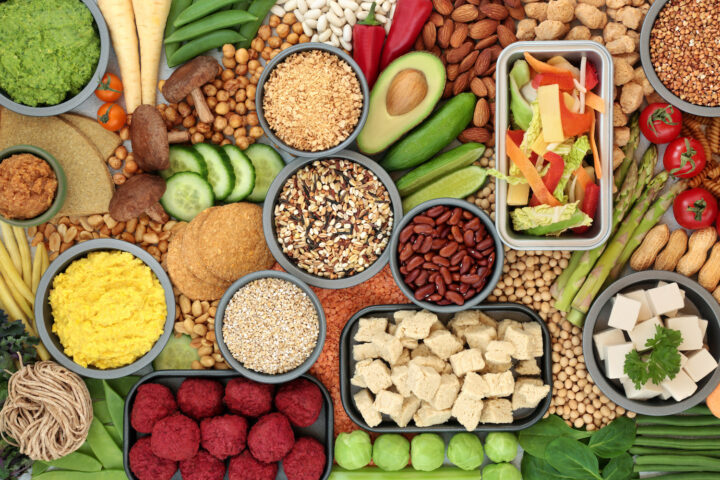
Tradition and innovation go hand in hand when it comes to food
The study ‘Decoding Food Culture’ by the Gottlieb Duttweiler Institute shows how deeply food culture shapes our lives. That is why it is a balancing act between tradition and innovation to bring about changes in nutrition.
Monday, February 10, 2025
Food culture is more than mere habit. It reflects the values and traditions of a society and has a significant influence on what, how and why we eat. While enjoyment is the main focus in countries such as France and Italy, quick meals, often taken in isolation, dominate in Switzerland. Such cultural patterns determine how open people are to new ideas. A strong sense of tradition can put the brakes on innovation.
The study emphasises that eating culture is shaped by enjoyment, community and health. Enjoyment creates the basis for satisfaction, community strengthens social bonds, and health is increasingly perceived as the basis for physical and mental well-being. At the same time, it shows that rootedness in traditions and rituals play a central role. They give eating a meaning, while control, for example through conscious eating or fasting, shapes behaviour.
Tradition often hinders innovation
The study also shows that eating habits are changing dramatically. In Switzerland and neighbouring regions, 92 percent of respondents have changed their diet in the last ten years. Common reasons are health, new information or financial considerations. Despite this dynamism, a strong attachment to traditions often inhibits the willingness to try new things. People with a strong connection to traditional eating habits are more likely to stick to them. When it comes to making food choices, 37% of Swiss people would like to see clearer product labelling and greater transparency in general.
If you want to successfully introduce new products, you have to take cultural peculiarities into account. Enjoyment is the key. Taste determines success or failure. Products that can be integrated into communal or ritualised contexts are better received. Transparency and sustainability are further factors that strengthen consumer trust. To anchor innovations in eating culture in the long term, clever strategies are needed that combine tradition and modernity.
Food culture is a complex interplay of tradition, social behaviour and individual values. It influences not only how we eat, but also how we accept change. Companies that understand and respect this cultural context can successfully bring innovations into people's daily lives. This is how an idea becomes a new tradition.
Flexitarianism is on the rise
Sustainable nutrition is no longer trendy – health is coming to the fore: More and more Swiss people are reducing their meat and fish consumption, but not giving up animal products completely. These people are known as flexitarians. As reported in the Sonntagszeitung, this form of nutrition seems to be booming: almost 27 per cent of households are now flexitarian. This is an increase of 18 per cent in just two years. The report is based on a study by the University of St. Gallen, co-financed by food manufacturer Danone.
However, there is no standardised definition of what exactly flexitarianism is. As Matthias Eggenschwiler, the lead author of the study, explains in the report, the flexibility of this diet lies precisely in its openness: it combines plant-based and animal-based foods, but consciously reduces the latter. Others, however, believe that flexitarians should eat no more than 300 grams of meat and 200 grams of fish per week.
The study also shows that the Swiss are not replacing meat with plant-based alternatives. Instead, they are increasingly turning to dairy products such as cheese and quark, as the NZZ article states. Plant-based milk and meat substitutes only play a minor role. The main reasons for this are the high prices of alternative products. In addition, retailers such as Coop and Migros often offer meat products at heavily discounted prices, which makes it even more difficult to switch to plant-based alternatives.
'Sustainable eating is no longer a priority for most people,’ headlines 20 Minutes, based on a broad-based study by EIT Food, and quoting an Aldi spokeswoman: 'We are seeing continued demand for foods that are perceived as healthy, such as fresh fruit, vegetables or protein-rich products.' The trend towards flexitarianism also fits with this.
Sources
Kindly note:
We, a non-native editorial team value clear and faultless communication. At times we have to prioritize speed over perfection, utilizing tools, that are still learning.
We are deepL sorry for any observed stylistic or spelling errors.
Related articles

Food trends: Innovative technologies are indispensable
Climate change and environmental problems will change our eating habits. The food of the future will have to be both good for us – and good for the planet.

Price more important for consumers than sustainability label
When buying food, Swiss consumers pay more attention to the price than to sustainability labels. One reason for this might be that many are not aware of what the labels mean. In addition, more and more people are buying their groceries online. This is the result of a survey by the retailer organization Swiss Retail Federation.

Vegetarian products have a bad reputation among consumers
Many consumers are of the opinion that vegetarian products are unhealthier and more harmful to the environment than meat. This is shown by a study by ETH Zurich. The negative attitude is also reflected in purchases. Vegetarian products are still niche products.

Global facts on world food and agriculture
Only thanks to technological progress and modern crop protection will we be able in the future to conserve our resources while feeding a growing population in a healthy and affordable way.

Pesticides in Green Smoothies
After countless recipes for Christmas cookies, festive roasts and cocktails, the advice on losing weight, detoxing and beautifying oneself now takes centre stage. Most of it is sheer nonsense.

Natural Toxins: An Underestimated Risk in Our Food
Safe food cannot be taken for granted. While chemical substances are often the focus of public criticism, reality shows that the greatest risks to food safety are of natural origin. Recent recalls of infant food products illustrate how insidious bacterial toxins or moulds can be.

Herbal Teas: Making You Sick Instead of Slim
Plant protection products are frequently the focus of public criticism. Far less attention is paid to the fact that natural ingredients in teas and dietary supplements are also biologically active and can pose health risks.

